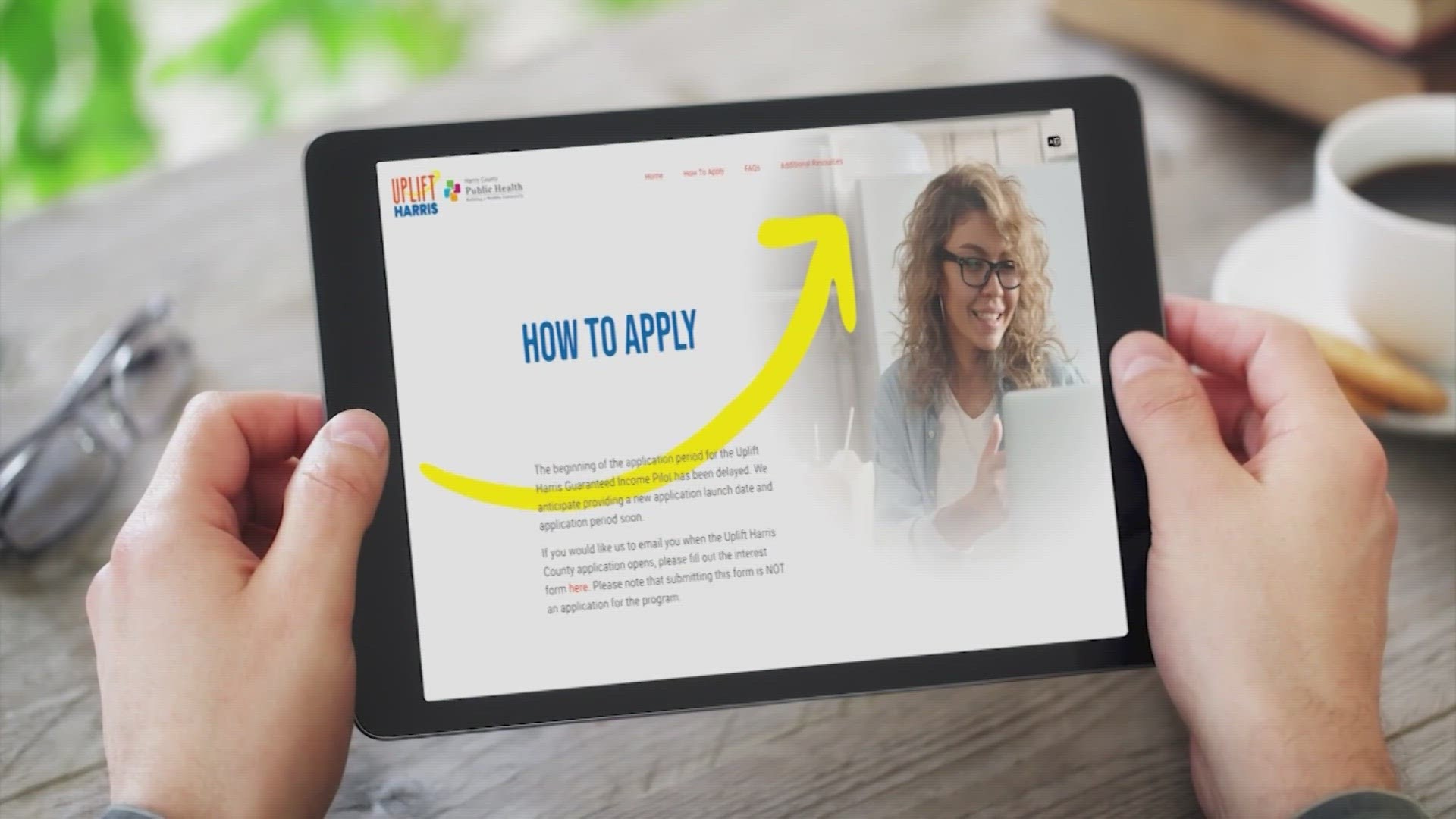HOUSTON — Texas Attorney General Ken Paxton is suing Harris County for its guaranteed income program designed to help eligible families in 10 targeted ZIP codes.
Paxton made the announcement Tuesday morning calling the program “unlawful.” He said it “redistributes public money in a manner that violates the Texas Constitution.”
Uplift Harris is the county’s first guaranteed income program and provides eligible households with $500 a month for 18 months.
Harris County Attorney Christian D. Menefee posted a response to Paxton’s lawsuit on X.
“Texas Republicans sued Harris County over our guaranteed basic income pilot program, which uses federal funds to provide $500 per month to some of the lowest income families in the county,” Menefee said. “This is nothing more than an attack on local government and an attempt to make headlines.”
Uplift Harris is funded with $20.5 million from the federal American Rescue Plan Act (ARPA), which was passed to help struggling Americans recover after the pandemic caused an economic crisis.
County leaders said they're worried the program will be derailed just weeks before checks were going to start going out.
"It's incredibly surprising, shocking and disheartening," Menefee said. "More than 1,900 families right here in Harris County were slated to get $500 a month to help them deal with economic issues here in our county. But instead, because of actions of a bunch of politicians out in Austin, these folks are now going to be put on hold."
Menefee said the program is constitutional and until a court order blocks it, the county will keep moving forward.
Commissioner Rodney Ellis also weighed in, releasing this statement: "At the local level, we refuse to be bystanders as soaring income inequality has led to 750,000 members of our community enduring a relentless cycle of poverty."
Menefee said he thinks the case could eventually make its way to the Texas Supreme Court. Other local leaders, such as Harris County Judge Lina Hidalgo, said other cities provided similar programs, such as San Antonio and Austin.
Sen. Paul Bettencourt released a statement in which he agreed with Paxton and called Uplift Harris unconstitutional.
County leaders are expected to hold a news conference about the lawsuit on Wednesday.
How the program works
More than 82,000 applications were submitted for the program from the 10 targeted ZIP codes, Brandon Maddox with Harris County Public Health said last month.
“Over the last couple of weeks, we've been conducting the review, verification, and lottery to narrow down to those final 1,928 households,” he said.
According to Maddox, the way they narrowed it down was a process. First, there was a screening system that ensured those who were eligible were moved to the lottery system for a chance to be selected.
“Under phase one, it randomly selects around 6,000 people. I think we selected a little bit over to make sure that we had 6,000 available in our pool of eligible applicants, Maddox said. "But then from there, those additional six, those not additional, but those we call them the lucky 6,000, had about a one in three chance of being selected for the final program. The phase two lottery then looks at those 6,000 and selects the final 1,928 to be to be selected.”
Maddox said notifications were sent out last week to let those who applied know whether or not they’ll be getting the $500 a month for 18 months.
"We notify them through either a text message or email,” Maddox said.
There will be a four-week enrollment period for those who have been selected.
“To identify how they would like to receive those funds, whether it is a direct deposit or on a reloadable direct debit card,” Maddox said.
Maddox said that if people enroll within the first few weeks, the first payment will go out on April 24.
“For those that enroll a little bit later in the enrollment period, that first payment would be in May,” Maddox said.
Out of that 1,928, some of those are from the Uplift Harris Program and some from Access Harris, a program that also provides services for those in need.

